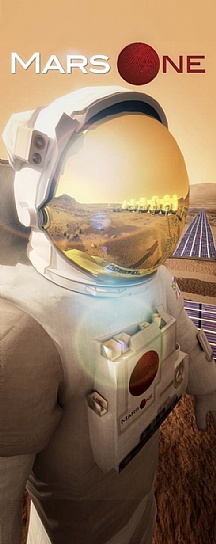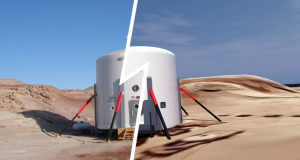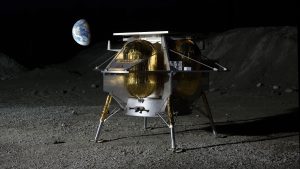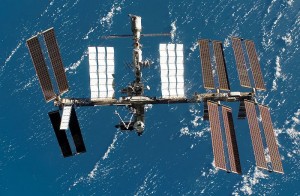Let’s Stir Up Some Competition

Does Mars One have a contract with one or more aerospace companies that can get the first Marstronauts to the Red Planet? I am hoping that, if they don’t, they are taking the time to choose the right one. It’s been more than forty years since somebody built a spacecraft that can take people out of low Earth orbit. The good news is that the basic principles that put people on the Moon haven’t changed much. The bad news is that most of the people who were involved in the Apollo Program have retired since then and we are rapidly losing that generation. Who would have the experience needed to send humans to Mars?
The fact is, nobody does simply because we haven’t done it. So says many of Mars One’s critics. If NASA can’t get its act together and just do the job of sending people to Mars, why does a little Dutch company think they can? Well, I’ve said before that the good thing about Mars One is that it isn’t dependent on funding from a fickle Congress. In fact, it isn’t even written in stone that they are going to make exclusive use of American aerospace companies. Though I am an American, I could see benefits in basically letting SpaceX know that it might be headed by a good marketer, but it’s not the only aerospace company out there. Mars One could go international the way it did with the Aspiring Martian selection process if any American element, including Congress, decides to make things difficult. The competition will certainly put American companies on notice that building and launching Mars rockets on American soil is not necessarily a done deal, and maybe Congress too if they poke their noses out of Capitol Hill long enough to notice that there are tax dollars at stake.
The competition will be a good thing for American aerospace companies by forcing them to function as something other than the military-industrial complex. My understanding is that Russia makes decent rockets and are, in fact, used to the idea of mass-producing them, though I hope they’ve gotten past the stage where they feel the need to cover up the failures. The European Space Agency’s main strength seems to be unmanned cargo ships at this point and Canada builds very good robotic arms if you go by the ones that are on the International Space Station now. China’s been making waves with a modest Salyut-level space station and a lunar rover. So it’s obvious that Americans aren’t the only ones in the game even if a lot of the players are relative novices.
Forcing aerospace companies to compete on the open market will also force them to work on bringing down prices by getting them to run things more efficiently. Mars One isn’t rich and, in fact, is in discussions with the entertainment industry to help pay the bills. That’s not a company that is going to be in a good mood if you force them to pay for wasteful spending. With incentive to improve both operations and technology, companies like Boeing can make spaceflight more accessible to average people instead of just the Dennis Tito types who can afford to spend tens of millions of dollars for a Soyuz ride to the International Space Station. I imagine suborbital flights that will make commercial jetliners obsolete by going from London to San Francisco in two hours or less. Buzz Aldrin’s Mars Cyclers will be like a relatively cheap form of interplanetary mass transit. It will take a very farsighted team of businessmen and engineers to invest in the research and organizations like Mars One can help to bootstrap that by stirring up a little competition.
This will mean not just avoiding becoming too dependent on any single company or nation. It will also mean not ignoring the little guy who can really do something if he just gets a little cash flow. When NASA needed a watch that could run on Martian time, they didn’t go to large watchmaking companies like Tag Heuer. Instead, they found a local watchmaker who was willing to take on the challenge of inventing a watch that could keep accurate time during a slightly longer Martian day. The result was a mechanical watch that was accurate enough for the creators of Mars Rovers like Opportunity. So sometimes NASA supports the little guy when it needs something unique that large companies can’t or won’t provide and gets good results out of it.
One Spaceport We Could Conceivably Launch From
I would very much like to launch from Spaceport America or someplace similar. We just need to be cautious so that the U.S. government doesn’t get a pickle up its bum over the fact that a little Dutch company could well one-up NASA. Which means that we could well have to make this about dollar signs if we want to deal with the cynical wheeling and dealing going on at Capitol Hill. When the future of the human race is at stake, exactly where we launch from won’t matter as long as we get the math right. I see operations like Mars One as something that will get attention for being successful if we just play our cards right and make it about the benefits of having Mars One operating on the turf of whoever is in charge when we’re ready to go.
Aerospace Collectibles on eBay








